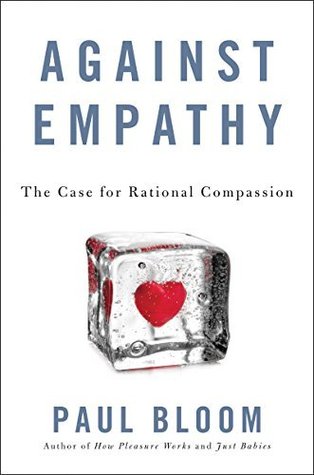More on this book
Community
Kindle Notes & Highlights
by
Paul Bloom
Read between
July 21 - August 8, 2019
People often cross the street to avoid encountering suffering people who are begging for money. It’s not that they don’t care (if they didn’t care, they would just walk by), it’s that they are bothered by the suffering and would rather not encounter it. Usually, escape is even easier.
I don’t think it’s empathy that makes them cross the street. It’s trying to avoid it. Knowing that there but for the grace of god go I, and it’s uncomfortable to feel that vulnerable. So we avoid the empathetic response.
Someone I know well, an affluent professor, spent a period of her life regularly working as a volunteer in a New Haven soup kitchen, even though she knew that she would do far more good by writing a check.
In the real world, as we’ve seen, the truth is usually the opposite.
No friend, you’ve shown some specific instances, and illustrated some of them poorly. This does not mean “usually.” And you failed to explain the economic arguments slavery, as opposed to the empathic arguments for it. At least it seemed like you were saying there was some sort of emotional argument in favor of slavery. I couldn’t really tell.
I believe it would have been morally right to engage in such action even thought it surely would have led to the death of innocent people.
This would require some foreknowledge that we simply are not capable of. You can’t talk about the harm prevented, because it is an unknown, unquantifiable entity.


